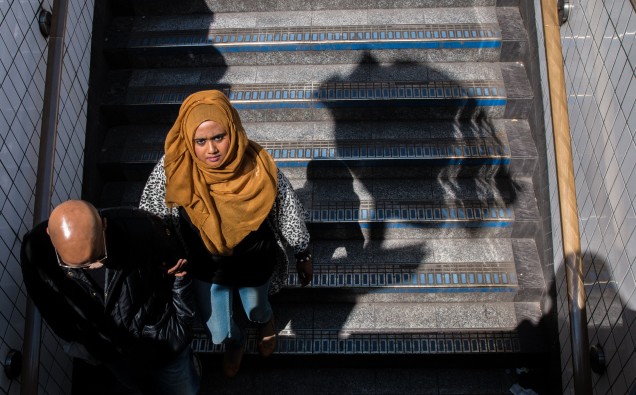The Chief Executive of a leading UK Muslim charity says he “fears” for thousands of vulnerable families across the UK ahead of this week’s autumn statement.
A new survey by Muslim Census shows 1 in 5 Muslims in the UK used a food bank in the past year, while two thirds of Muslims on low incomes are now struggling to pay bills every month[1].
Dr Sohail Hanif, CEO of the National Zakat Foundation (NZF) says “These are extremely worrying figures, especially as we enter colder months. Gas, electricity, household groceries and clothing are the bare necessities, and without them, many Muslims could face further complications relating to their health and wellbeing.”.
“The spending cuts planned in the autumn statement will hurt services used by our most vulnerable and I fear for them in the coming months”, he adds.
NZF are a leading charity offering financial support exclusively to the UK’s Muslim community through Zakat, an annual payment which requires Muslims to donate 2.5% of their qualifying wealth.
The organisation itself has seen a 90% year-on-year increase in applications for its hardship relief programme, with the organisation also highlighting that Zakat funding deficits are running into hundreds of thousands of pounds in some parts of the country.
The survey also revealed that even more Muslims have been plunged into debt, as now six in ten Muslims say that they are currently worse off than they were this time last year and that three quarters have mental health worries arising out of the cost of living crisis.
Arguably the most worrying statistic to come from the survey states that a third of Muslims living in the UK have had to skip spending on food in order to afford their household bills, with one in five having used a food bank in the past year.
Dr Hanif voices, “This finding is particularly distressing. Knowing that thousands of hard-working Muslims are going hungry each day, despite working hard and having an income feels inhumane.”
“Not to mention the support from these services will suffer as they become even more strained with an increasing number of people needing to rely on them.”
The Census findings further reveal that almost two thirds of all UK Muslims have had to take out some form of debt to accommodate their everyday costs and bills since August 2021.
These debts include buy now pay later schemes, credit cards and long-term loans, all of which have seen increased interest rates amid the recent inflation.
Whilst relying on these debts is unavoidable for many Muslims, these specific schemes are likely to plunge users into further debts with such interest rate increases.
“There is such a stigma surrounding having financial debt and reaching out for support within the Muslim community, which is why so many turn to counteractive solutions.”, explains Dr Hanif.
“There are so many sources of help when its needed, from Zakat charities to universal credit and money advice services.”
As a result of this stigma, hundreds of thousands of Muslims are suffering in silence, as the census reveals just a third of Muslims are comfortable talking about finances openly with their family, friends or their wider community.
The cost-of-living crisis has thus led to a sharp decline in many Muslims’ mental health, with more than three quarters of the community admitting to experiencing issues.
Mental health charity, Mind, state debts as being a standout cause of mental health decline. Yet, waiting lists for free support can be over a year long.
“This is where we encourage Muslims to speak out to their community for instant support. Opening up and asking for help from those close to them could be the lifeline they need through this turbulent time.”, says Dr Hanif.
National Zakat Foundation strongly encourage those in need to reach out to organisations, such as themselves, if you are experiencing urgent financial problems.



















